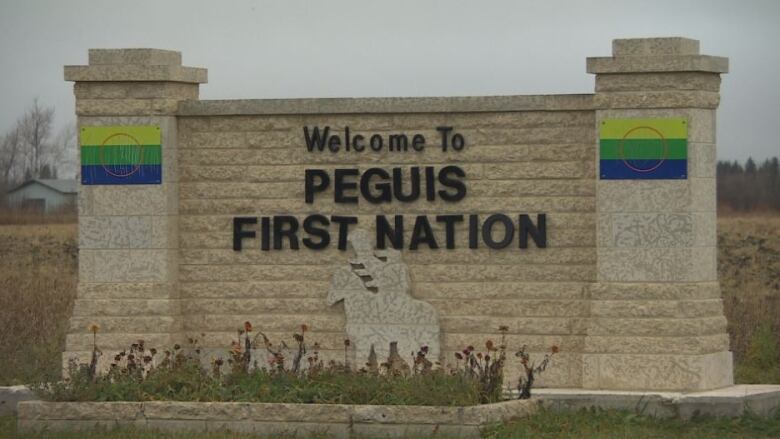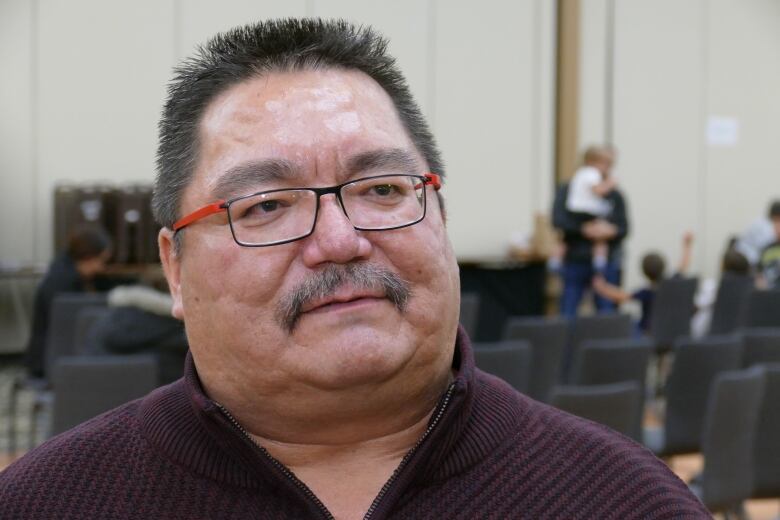Manitoba First Nations on high alert after three probable COVID-19 cases identified
Peguis First Nation wants individuals who tested positive for COVID-19 to self-isolate in Winnipeg hotel

Manitoba First Nations are ramping up their safety protocols and working with all levels of government to help mitigate the risk of community COVID-19 spread, afterthree presumedcases of COVID-19 were identifiedin two neighbouring Interlake communities this week.
Peguis First Nation leadership announced Friday evening two of its members tested positive for COVID-19 after receiving rapid testing. Earlier in the day, Fisher River Cree Nation reported one of its members also tested positive.
The testsare awaiting officialconfirmation at the province's Cadhamlab.
The presumptive cases are the first identified in First Nations communities in Manitoba.
"I think people have felt some disappointment," said Peguis First Nation ChiefGlenn Hudson. "There's a heightened awareness, obviously, given that we have two presumed probable cases in the community."
He saysthe First Nation's COVID-19 response team has worked hard for the last six months to try to protect the community,about 160 kilometres north of Winnipeg,from the novel coronavirus.
"To me it was kind of deflating, I guess, as far as trying to keep our community safe."

The First Nation is tight-knit, making physical distancing a challenge, Hudson says.There's also only one ventilator on site a concern ifpeople develop serious symptoms.
"We don't really have a place to isolate. We have a lot of overcrowding in our homes," he said.
"We have limited resources if these people become sick as a result of [COVID-19]."
The two people believed to have the illness arecurrently self-isolating, but Hudson wants themtaken to Winnipeg, where they can have better access to health-care facilities.
"We're recommending that we do remove them from the community and have a federal facility, a hotel in city of Winnipeg, where they are accepting people that do have COVIDto isolate for the next 14 days," he said.
The community is alsosetting up a testing station in Peguisstarting Sunday at noon, according to a Facebook update to First Nations members.
A drive-up rapid testing station will be open for people named as close contacts and those experiencing symptoms of COVID-19. Others who wantto be tested will be screened.
After Sunday, it will be open daily from 10 a.m. to 4 p.m.
As well, the First Nation is working on setting up a checkstop to restrict non-essential travel into and out of the community.
"At this point, we will be turning people away that don't have any essential services that are being provided," Hudson said.
Fisher River ramping up testing
Meanwhile, Fisher River Cree Nation is also working to ramp up its COVID-19 testing capacity,according to a statement from the community released on Friday.
The community member who tested positive andtheir close contactsareself-isolating, andhealth-care workers are doing active daily monitoring.
The First Nation is also setting up a rapid testing site starting Sundayfor people named as close contacts and for those experiencing symptoms, according to a statement from Chief David Crate on Saturday.
"Stay vigilant, stay safe, stay strong and be respectful; we as a community will get through this together," the statement said.
Indigenous Services Canadasays there are 53 active cases of COVID-19 on First Nations across Canada. That doesn't include the probable positive cases in Manitoba, because they haven't been confirmedat the Cadham lab.
Nine people with the illness on reserves across Canada have died, and 429 have recovered after falling ill with COVID-19.
Neighbouring First Nation concerned
First Nations are especially susceptible to community spread, and that's concerning to Dakota Traverse, the emergency measures co-ordinator for Kinonjeoshtegon First Nation in the Interlake.
"My first initial thought was panic, I'm not going to lie," he said. "It's not easy to hear something so devastating across the globe to be so near to my community."
The First Nation, also known as Jackhead, is a short drive from Peguis and Fisher River.

"The situation in Jackhead right now is still kind of calm," Traverse said.
"People are obviously afraid of what's going on in our neighbouring communities, but we are taking every precautionary measure to ensure the safety and well-being of our community."
For the time being, people can still travel in and out of Kinonjeoshtegon First Nation, but the community is establishing a checkstop to monitor who's coming inand leaving.
WATCH | Manitoba First Nations on high alert:
With files from Austin Grabish













_(720p).jpg)


 OFFICIAL HD MUSIC VIDEO.jpg)
.jpg)



























































































